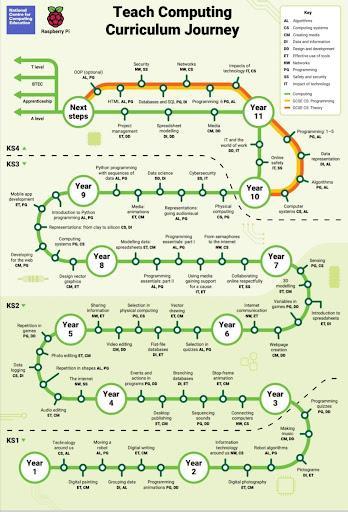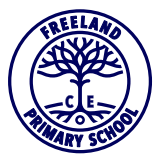Computing
Intent
In an ever changing world it is vital that children understand and use computing skills. Children are being exposed to computing earlier and more frequently and without basic skills they may find their options as adults are reduced. Developing computational thinking in learners can be started from an early age and will help them make sense of and contribute to the society they will live in as adults. Through teaching e-safety, computational thinking and digital literacy we are future proofing children so that they can be safe, competent and engaged digital learners. Pupils use Computing tools to find, explore, analyse, exchange and present information responsibly, creatively and with discrimination. They learn how to employ Computing strategies to enable rapid access to ideas and experiences from a wide range of sources. Our vision is for all teachers and learners in our school to become confident users of Computing technology so that they can develop the skills, knowledge and understanding which enables them to be confident, creative and independent learners.
Implementation
Teaching and Learning
We teach computing using the NCCE curriculum.
The implementation of the curriculum also ensures a balanced coverage of computer science, information technology and digital literacy. The children will have experiences of all three strands in each year group, but the subject knowledge imparted becomes increasingly specific and in depth, with more complex skills being taught, thus ensuring that learning is built upon. For example, children in Key Stage 1 learn what algorithms are, which leads them to the design stage of programming in Key Stage 2, where they design, write and debug programs, explaining the thinking behind their algorithms.
This learning road map produced by the NCCE outlines Freeland School's Computing curriculum. This shows the progression of computing skills from KS1 to KS2. E-Safety is not included in this road map, however it is still taught within the Computing curriculum: throughout the year:

The core principles of the Computing curriculum.
The following core principles should underpin all Computing teaching and technology use within Freeland Primary School.
Digital literacy
Digital literacy forms the backbone of the Computing curriculum at Freeland Primary School. Children should develop Computing skills that can be thoughtfully applied in a range of different situations, with children developing increasing independence in the choices they make over which technology to use to help them reach the desired outcome. As they progress through KS1 and 2 children will become increasingly confident in the application of their digital skills, becoming increasingly efficient and effective communicators, collaborators and analysts, showing imagination and creativity in their use of Computing in different aspects of their learning and life beyond school.
The development of digital literacy is underpinned through expectation that Computing skills and objects areas are applied across all curriculum subjects.
Technology in the world
Children should develop an understanding of how technology makes a difference in all aspects of life- at home, at school and in the workplace, as well as considering the impact technology has had on society over the years.
Children will, for example, identify the different elements of a webpage (EYFS), develop an awareness of how different technology is used in the world around us (KS1) and begin to evaluate web pages, software and applications and use this evaluation in the planning of their own digital artefacts (KS1🡪 KS2)
Technical understanding
Children should develop the knowledge and understanding of how technology works.
This extends from an awareness that there is ‘something inside’ a piece of technology to make it work (EYFS), progressing through KS1 and KS2 to children creating their own simple programs including games, utilities and applications with exposure to computer codes and scripts.
Safe and Responsible Use.
See E-Safety section below.
The extent to which these core areas are addressed should be identified as part of medium term planning for Computing in Freeland Primary School.
E-Safety
E-safety is a fundamental element of Computing teaching and technology use at Freeland Primary School. The school has a separate E-Safety policy, and E-Safety sessions will take place regularly in each year group as part of both Computing and PSHE sessions.
Planning
The school uses a progression map to ensure that the children are receiving a breadth of knowledge across all strands of computing (online behaviours, computational thinking, data handling and e-safety). The progression map also ensures children are being moved forward in their skills to become competent computer users and develop a mastery of skills within their year group.
Impact
At the end of each unit of work there is an assessment in place to test the children’s knowledge and understanding. This will allow teachers to assess effectively and help the children understand the next steps in their learning journey.
Much of the subject-specific knowledge developed in our computing lessons equip pupils with experiences which will benefit them in secondary school, further education and future workplaces. From research methods, use of presentation and creative tools and critical thinking, computing at Freeland gives children the building blocks that enable them to pursue a wide range of interests and vocations in the next stage of their lives.
